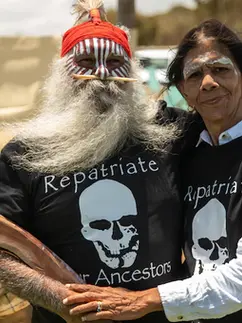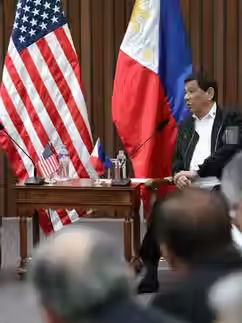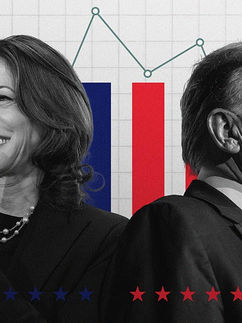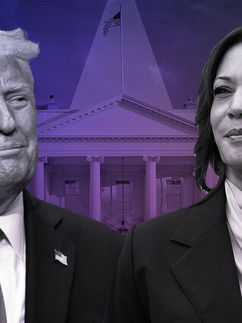The rise of conservative Islam in Indonesia and its implications for the 2024 General Elections
- Young Diplomats Society
- Oct 18, 2023
- 5 min read
Abby Wellington

Following the “green wave” in Malaysia’s recent elections, political commentators are speculating whether or not a similar pattern will present itself in Indonesia’s presidential elections next year. Conservative Islam has been on the rise across Southeast Asia for some time now. This has seen a simultaneous rise of political Islam, with hardline Muslims calling for the government to legislate according to Sharia Law. Whether this actually translates to political and electoral outcomes differs vastly from nation to nation.
In Indonesia, conservative Islamic resistance to the government has been happening for decades. Today, it seems that this resistance is beginning to impact the national political arena. In 2016, conservative Muslim groups, Islamic Defenders Front and Hizb ut-Tahrir, launched protests against the incumbent governor of Jakarta, Basuki Tjahaja “Ahok” Purnama. “Ahok”, a Christian, was eventually jailed for blasphemy and lost the governorship to Islamic politician Anies Baswedan.
Furthermore, in the previous general election, Joko Widodo selected Ma’ruf Amin, a conservative Islamic cleric, as his running mate in an effort to appeal to this portion of the Indonesian population. Although these events imply conservative Islam may be permeating the political arena, it is unlikely it will play a major role in the 2024 general election due to the following reasons.
Rise of conservative Islam in Indonesia:
Islam in Indonesia has a rich history dating back to when the region first began trading with the Middle East; however, the current wave of conservative Islam can be traced back to the 1970s. The years preceding the 1970s in Indonesia were defined by political instability and national disunity. Following a failed coup in 1965 that eventually led to the ousting of President Sukarno, General Suharto assumed control of the nation. By the late 1970’s, Suharto was years into a campaign aimed at instilling a unifying ideology in the nation based on the concept of Pancasila.
Pancasila recognises the diverse ethnic and religious backgrounds underpinning Indonesia. Celebrating the motto “unity in diversity”, Pancasila requires Indonesians to live by five key principles. These require a commitment to:
Monotheism;
A just and civilised society;
Unity;
Democracy;
Social Justice;
A key component of this ideological base, however, was maintaining secularism in the political sphere. It allowed Suharto to implement an authoritarian regime.
Nonetheless, as early as 1971, Islamic resistance to his secular governance began to emerge. In the election that year, large Islamic blocs turned out to vote for political Islam. In the following years, university-based Islamic political groups gave rise to a new wave of conservative Islam. Much of this was in response to Suharto’s blatant corruption. Islamic political protesters argued that a nation based on Islamic ideology would ensure leaders would act according to principle and not fall into corruption.
By 1978, political Islam had become quite the threat to Suharto and the Pancasila doctrine. Student protests had become the norm in the nation, however in March that year Suharto sought to crack down on the threat. In March of 1978 it is estimated that 6 six students were killed and another 800 arrested for promoting political Islam. Months later, Suharto introduced Normalasisi Kehidupan Kampus which prohibited political Islam related activities on University campuses.
Since then, conservative Islam has bubbled away until the 2000s when the “big bang” occurred. The “big bang” in Indonesia saw the decentralisation of governance in the nation. Power was redistributed to give particular provinces more autonomy over legislation. Consequently, provinces with majority conservative Muslim populations slowly took a turn to political Islam. In 2014, the province of Aceh was given parliamentary approval to enact Sharia Law province wide. West Sumatra received similar approvals just last year.
Alexander Raymond Arifianto, a fellow at the S. Rajaratnam School of International Studies in Singapore, has warned that other provinces with significant conservative Islamic populations could pursue the same approvals. This is problematic for religious minorities in this region who would be forced to practise Islam. These provinces are South Sulawesi, West Java and South Kalimantan to name a few.
Political Islam in the 2024 Election:
So, the question now becomes, how much will political Islam influence the 2024 general election? On the one hand, political Islam will play almost no role in the election of the President or the national legislative branch. However, it will be far more influential in the outcome of provincial elections.
There are a number of reasons why the national and presidential election will be unaffected. Firstly, despite the rise of conservative Islam, modest Muslims are still very much the majority. These groups, such as Nahdlatul Ulama (NU), the largest Islamic organisation in the nation, are committed to maintaining a secular national government. In fact, NU has played a significant role in Indonesia’s ‘exportation’ of moderate Islam. The group co-hosted a religious forum with the Muslim World League when Indonesia chaired the G20 last year. At the meeting they encouraged other Islamic nations to pursue moderate practices and not enforce Sharia Law on unwilling citizens.
As a result, when Indonesian leaders go against these calls for moderate practice they lose crucial support from the large moderate movement. Presidential candidate Anies Baswedan found this when he supported the conservative group Islamic Defenders Front’s campaign against “Ahok” for his lack of commitment to Islam. Commentators argue this is why he has chosen the leader of the largest Islamic Party, Partai Kebangkitan Bangsa (PKB), as his running mate. PKB has close ties with NU, it gives him the opportunity to restore his relationship with the population of moderate Muslims.
The second reason why conservative Islam will not have a major effect on the national level of the general elections is that many of the branches of conservative practice do not translate to political activities. Salafism, for example, is an ultra conservative branch of Islam that promotes a “quietist” approach to practise. This means they do not pursue nor participate in politics. Of course, there are some exceptions to this but on the whole it illustrates the diversity of conservative Islam. To assume that a rise in conservative practice will result in a rise in political Islam misunderstands the intentions of the relevant individuals.
Nonetheless, it is likely that political Islam will play a major part in some of the provincial elections that take place alongside the presidential election. Particularly in the conservative provinces such as Aceh and West Java. Because Indonesia has a decentralised government, conservative Islamic minorities have turned their focus to gaining power in provinces rather than on a national scale. Consequently, political Islam does not necessarily need to achieve big wins in the 2024 election as significant progress can be made from within regions of the nation.
All in all, conservative Islam and political Islam will play an interesting role in the upcoming election in that it will not dictate the election of the President but will very much influence a variety of provincial outcomes.
Abby Wellington is currently studying a Bachelor of Arts and Journalism (International Relations and Economics) at The University of Queensland. An aspiring foreign affairs reporter, Abby is interested in the changing nature of international security in a globalised society.

















Comments